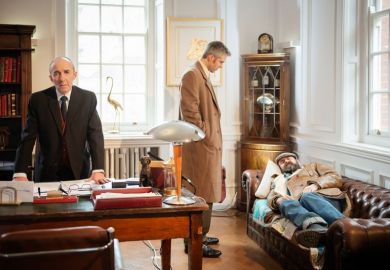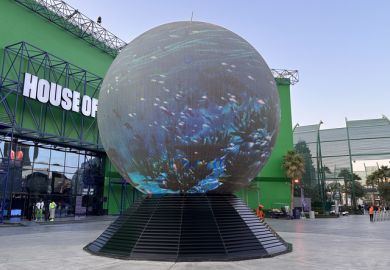Twenty-two university-based arts centres have formed a consortium to share best practice and forge collaborative projects.
The initiative arose out of a 2015 report produced by the Warwick Commission on the Future of Cultural Value, Enriching Britain: Culture, Creativity and Growth, which argued that higher education institutions “should develop long-term commitment and strategies to position themselves as beacons of civic and cultural engagement and as a resource for the local community by offering access to facilities, skills and new avenues of funding”.
This led to “initial conversations between multi-purpose, multi-artform arts centres” based in universities, explained Andrea Pulford, director of planning and operations at the Warwick Arts Centre, who is now acting as chair for the University Centres for the Arts Network (UCAN).
These then joined forces with single-artform centres at universities, such as galleries and theatres, to form a group of 22 venues located in places from Aberystwyth, Bangor and Bath to Stirling, Surrey, Sussex and Swansea.
Between them, the centres generate a turnover of more than £25 million and welcome audiences of at least 1.2 million people per year.
All already claim experience and expertise in areas such as: acting as incubators for new ideas and innovative practices; supporting students as curators and performers; engaging with local and regional communities; and contributing to research, teaching and impact agendas. But they also believe that they have much to learn from each other.
It is envisaged that members will meet three or four times a year. This, noted Ms Pulford, will allow for informal networking between centres, which offers “scope for artistic collaboration, supporting artists and opportunities to tour between venues”.
But it will also enable them to explore broader themes of shared interest such as “talent development, employability and the value of lifelong learning”. Many may also want to consider further collaborations across disciplines, often bringing the arts into creative tension with scientific subjects.
The Arts Council, as Ms Pulford pointed out, is already very interested in “regional development and cultural place-making”.
Although the venues all contribute to these goals individually, UCAN should enable them to play a more strategic role through reports that set out “the case for the development of arts and culture regionally and nationally” and communications campaigns aimed at funders and others.
Register to continue
Why register?
- Registration is free and only takes a moment
- Once registered, you can read 3 articles a month
- Sign up for our newsletter
Subscribe
Or subscribe for unlimited access to:
- Unlimited access to news, views, insights & reviews
- Digital editions
- Digital access to THE’s university and college rankings analysis
Already registered or a current subscriber?




